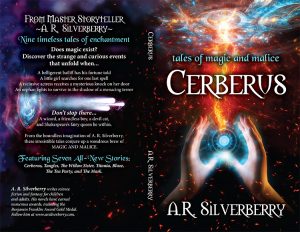Writing Manuals and Reference Books for Writers
Writings manuals and reference books have been essential to my growth as a writer. So for part two of a series on writing, publishing, and book marketing, I thought I would share some of the books that have had the most influence on me, including the ones I still refer to often while working on a novel or short story. Let’s start with the writing manuals.
Writing Manuals
A Writer’s Gide to Fiction, by Elizabeth Lyon. My first six years as a writer, I was a pure pantser, using my intuition and artistic sense to guide plot and pacing, drawing heavily on unconscious processes. I wrote some creative stories that way. Problem was, when I submitted my first novel to agents, the feedback I got back was that theme, character, and plot did not all fit together harmoniously. They were right. To learn more how to fix that, I took a class from editor extraordinaire, Elizabeth Lyon. It changed the way I write, and her concepts are found in the above book. If you’re new to the craft, read it. You won’t be disappointed.
A Story is a Promise, by Bill Johnson. In both her book and her class, Elizabeth Lyon drew lessons from this book by Bill Johnson. It’s a real eye opener and gets to the core of how to unify plot, character, and theme. Whether you’re a planner or a pantser, you can still conceptualize your story through the story-is-a-promise lens. I have found it critical to helping me hone down to the essentials of my stories so that I don’t go astray. Alternatively, if I do go astray—because something new, surprising, or compelling appears before my eyes as I write—I can always revise the premise that unifies the story. It becomes a back and forth process with a satisfying result.
Characters Make You Story, by Maren Elwood. This is a classic writing manual, first published in 1942, and was also the first book on writing that I read. I devoured it. While the samples and writing style are dated, the concepts are eternal. She presents all the essential ways of showing a character’s character and how to set up conflicting motives to drive forward a plot. The only downside is that the tenets she presents about writing children’s fiction are out of step with the times.
Write Away, by Elizabeth George. My wife had the good fortune of taking a writing class from Elizabeth George, just as her career was taking off in the 80’s. She’s a master mystery writer with a profound understanding of human psychology and motives, and writes with a literary flair. Anyway, this book outlines her approach to writing fiction. I learned a lot of powerful ideas about setting, voice, and dialogue. I come back to it often. Really, she’s the one that inspired me to write.
The Writers Journey: Mythic Structure for Writers, 3rd Edition, by Christopher Volger. This is an essential guide for applying the Heroes Journey and archetypes to your plot and characters.
The First 50 Pages, by Jeff Gerke. Not sure if you’re hooking readers and building sympathy for your main character? This book spells out ways to accomplish your goal. I really like that he offers alternative approaches and empowers you to decide what works best for you as a writer or for the particular story you’re crafting. He also offers editing and consulting services to authors. If you looking for that, check out his website.
Writer’s Digest. Okay, it’s not a reference book, but you can find lots of great articles on any question you have about writing, marketing, searching for an agent, publishing, etc. I’ve got old editions of the magazine I’ve kept because of great articles, like ways to craft minor and walk-on characters. And what I don’t have, I can find on their website. They also have great services for authors, like query critique, synopsis critique, and manuscript evaluation. Check it out!
Reference Books
Grammatically Correct: The Essential Gide to Spelling, Style, Usage, Grammar, and Punctuation, by Anne Stilman. Confession: I suck at grammar. But over the last twenty years I’ve been bound and determined to master it. This book is filled with clear definitions and examples.
The Chicago Manual of Style, 16th Edition. The bible, and an obvious companion to the book above. Probably has more than you’ll ever need, but when you’re stuck, you can find the answers. It’s now in the 17th edition, but this one still serves. I let my editor keep up on the shifting terrain of style.
Daily Life in Medieval Times, by Frances and Joseph Gies. My fantasy stories are often set in worlds similar in social, economic, political, and technological ways to medieval Europe. This volume has been a big help, from food, to agriculture, to the organization of village life. You name it—you’ll find it.
Bricriu’s Feast, by Morgan Smith. An essential reference for fantasy writers creating worlds set in a medieval-like period. This quote from the back cover tells it all: “A thorough look at what the Irish of the early medieval period would have eaten,” including information on ingredients, cooking methods, farming, herbs, and beverages.
Edible Wild Plants, Wild Foods from Dirt to Plate, by John Kallas, PhD. Herbs and other edible wild plants often pop up in my stories, perhaps because I write about characters that need to survive under harsh conditions. This book has been invaluable.
Roget’s Thesaurus. Most writers feel these have limited value when you’re crafting a sentence. In general, I agree. But sometimes I discover words that might not occur to me otherwise. I’ve got an ancient edition I inherited from my mom. Which leads me to …
Use the Right Word, A Modern Guide to Synonyms, by S. I. Hayakawa. I avoided this for years because it was published by Reader’s Digest. Big mistake. Inside, you’ll find a cogent discussion of the subtle difference in meaning between related words. I don’t reach for it too often, but when I do, it’s really helped me write with precision.
Conclusion
From the moment writers pick up a pen, they embark on a journey of growth and development. The books above have helped to shape that process for me. I hope you find them useful!


